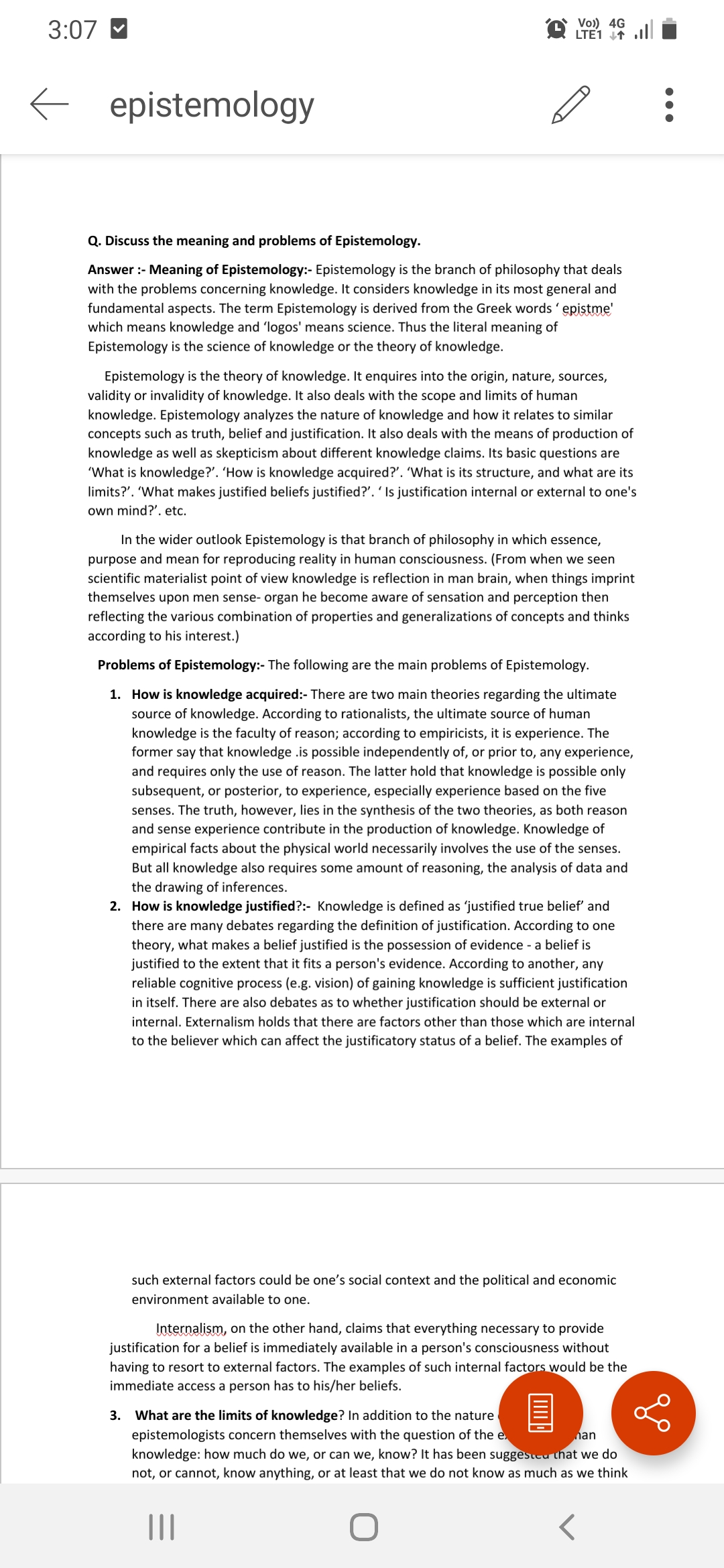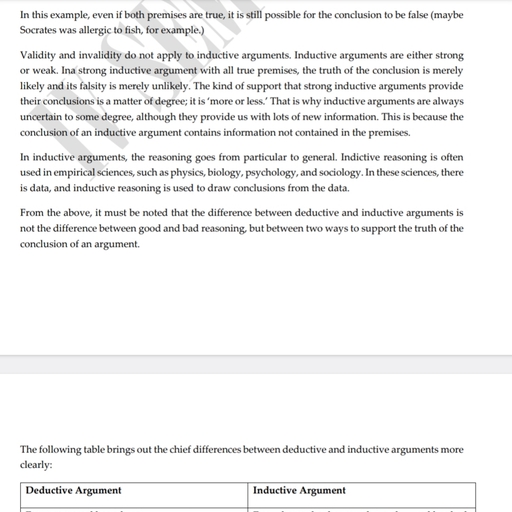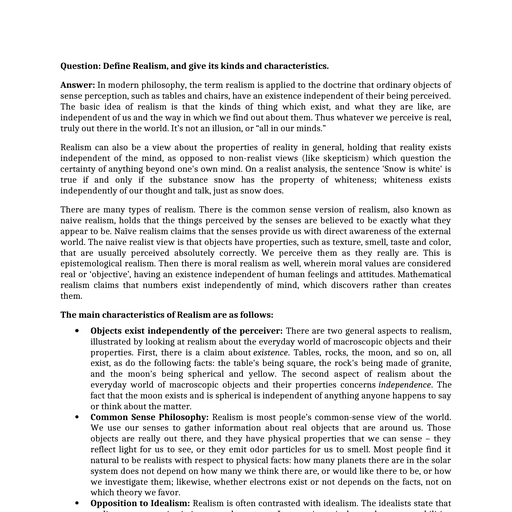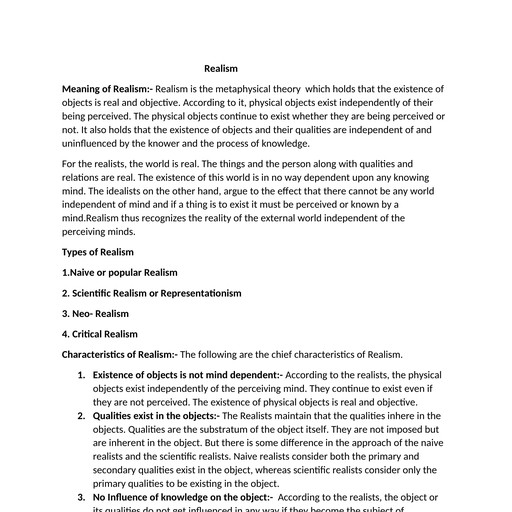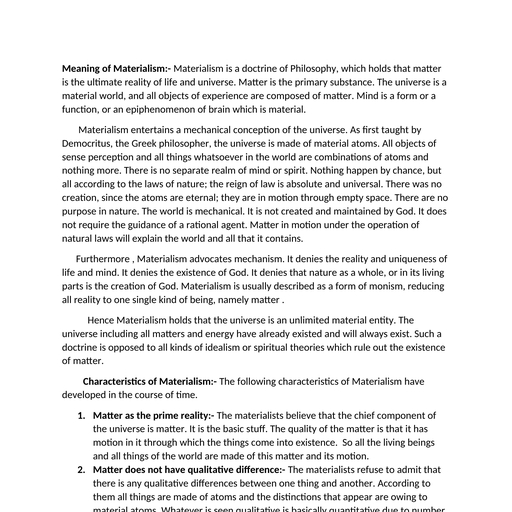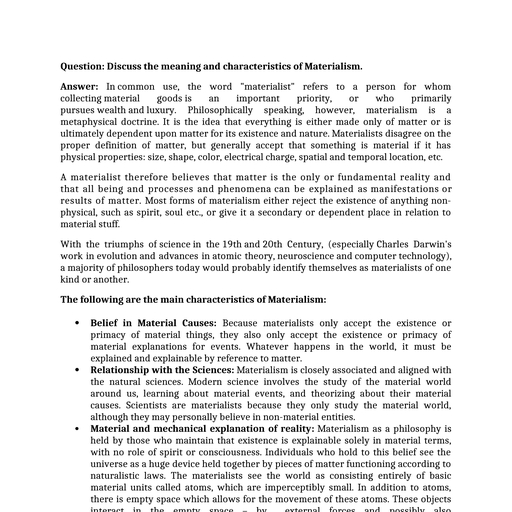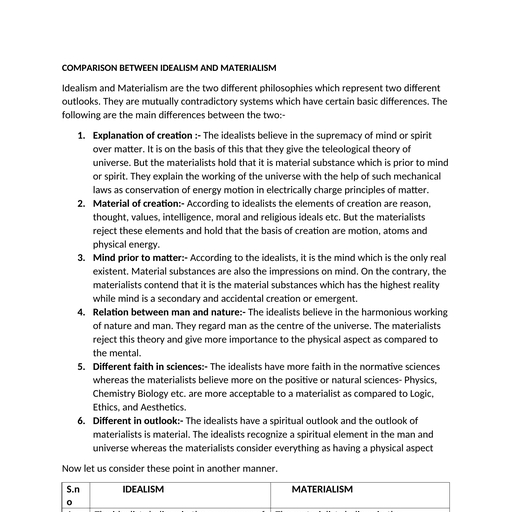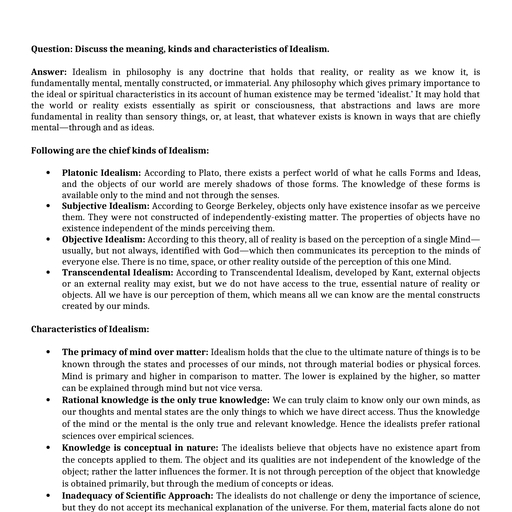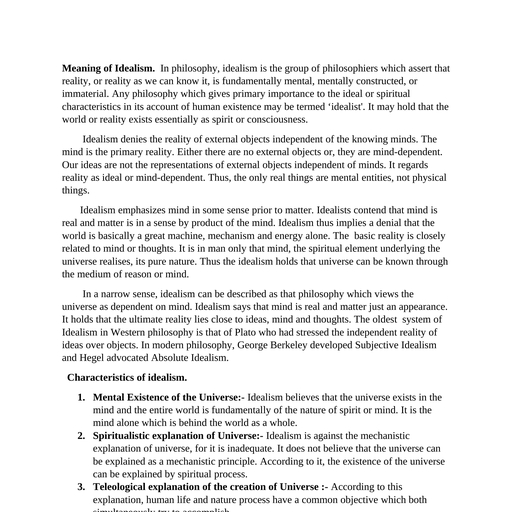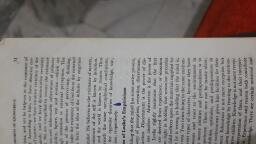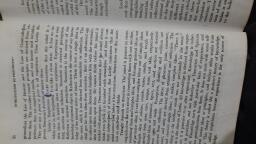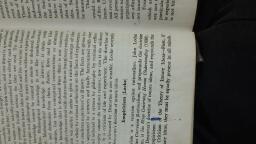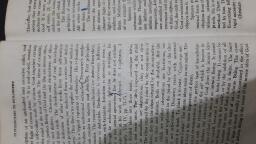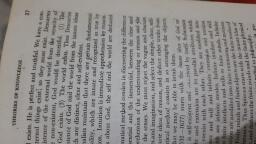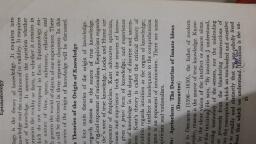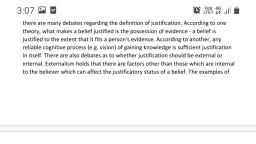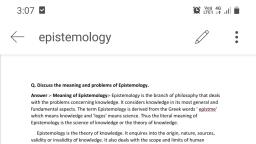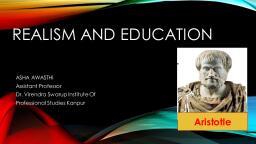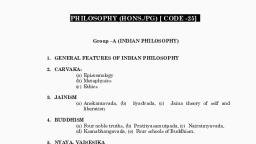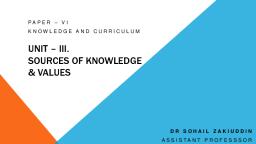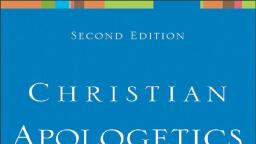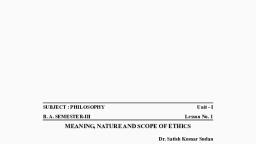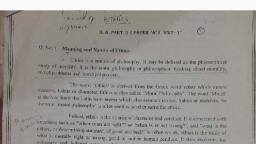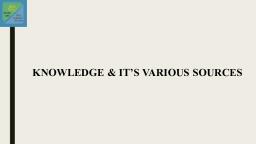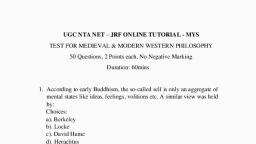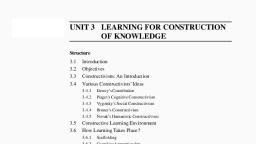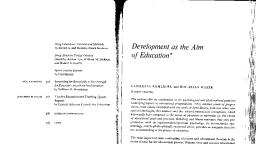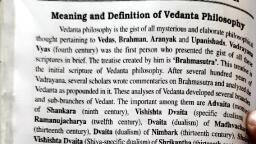Page 1 :
3:07 wes ule, , < epistemology Lo, , Q. Discuss the meaning and problems of Epistemology., , Answer :- Meaning of Epistemology:- Epistemology is the branch of philosophy that deals, with the problems concerning knowledge. It considers knowledge in its most general and, fundamental aspects. The term Epistemology is derived from the Greek words ‘ epistme', which means knowledge and ‘logos' means science. Thus the literal meaning of, Epistemology is the science of knowledge or the theory of knowledge., , Epistemology is the theory of knowledge. It enquires into the origin, nature, sources,, validity or invalidity of knowledge. It also deals with the scope and limits of human, knowledge. Epistemology analyzes the nature of knowledge and how it relates to similar, concepts such as truth, belief and justification. It also deals with the means of production of, knowledge as well as skepticism about different knowledge claims. Its basic questions are, ‘What is knowledge?’. ‘How is knowledge acquired?’. ‘What is its structure, and what are its, limits?’. ‘What makes justified beliefs justified?’. ‘ Is justification internal or external to one's, own mind?’. etc., , In the wider outlook Epistemology is that branch of philosophy in which essence,, purpose and mean for reproducing reality in human consciousness. (From when we seen, scientific materialist point of view knowledge is reflection in man brain, when things imprint, themselves upon men sense- organ he become aware of sensation and perception then, reflecting the various combination of properties and generalizations of concepts and thinks, according to his interest.), , Problems of Epistemology:- The following are the main problems of Epistemology., , 1. How is knowledge acquired:- There are two main theories regarding the ultimate, source of knowledge. According to rationalists, the ultimate source of human, knowledge is the faculty of reason; according to empiricists, it is experience. The, former say that knowledge .is possible independently of, or prior to, any experience,, and requires only the use of reason. The latter hold that knowledge is possible only, subsequent, or posterior, to experience, especially experience based on the five, senses. The truth, however, lies in the synthesis of the two theories, as both reason, and sense experience contribute in the production of knowledge. Knowledge of, empirical facts about the physical world necessarily involves the use of the senses., But all knowledge also requires some amount of reasoning, the analysis of data and, the drawing of inferences., , 2. How is knowledge justified?:- Knowledge is defined as ‘justified true belief’ and, there are many debates regarding the definition of justification. According to one, theory, what makes a belief justified is the possession of evidence - a belief is, justified to the extent that it fits a person's evidence. According to another, any, reliable cognitive process (e.g. vision) of gaining knowledge is sufficient justification, in itself. There are also debates as to whether justification should be external or, internal. Externalism holds that there are factors other than those which are internal, to the believer which can affect the justificatory status of a belief. The examples of, , such external factors could be one’s social context and the political and economic, environment available to one., , Internalism, on the other hand, claims that everything necessary to provide, justification for a belief is immediately available in a person's consciousness without, having to resort to external factors. The examples of such internal factors would be the, immediate access a person has to his/her beliefs., , , , , , 3. What are the limits of knowledge? In addition to the nature, epistemologists concern themselves with the question of the é, knowledge: how much do we, or can we, know? It has been sugge at we do, not, or cannot, know anything, or at least that we do not know as much as we think, , lI O <
